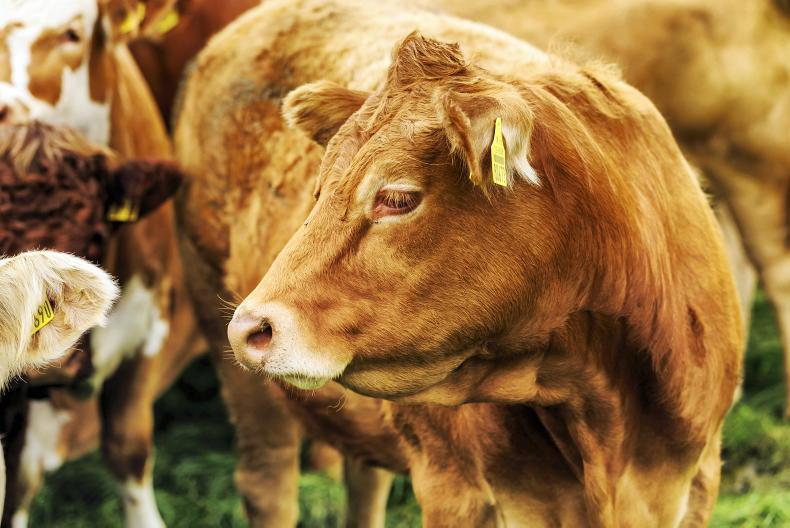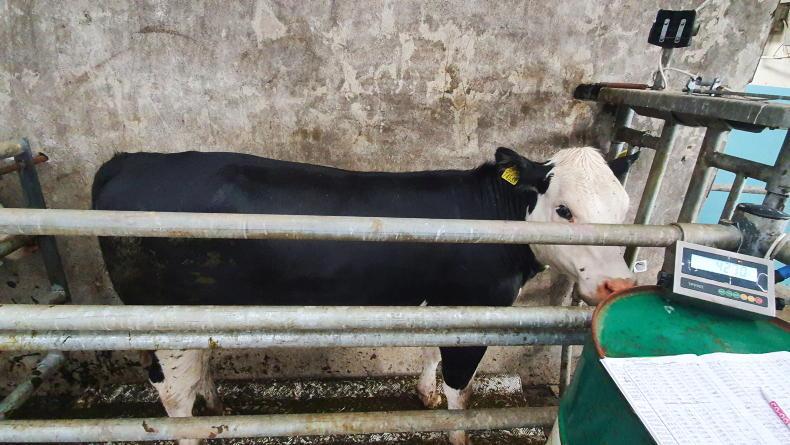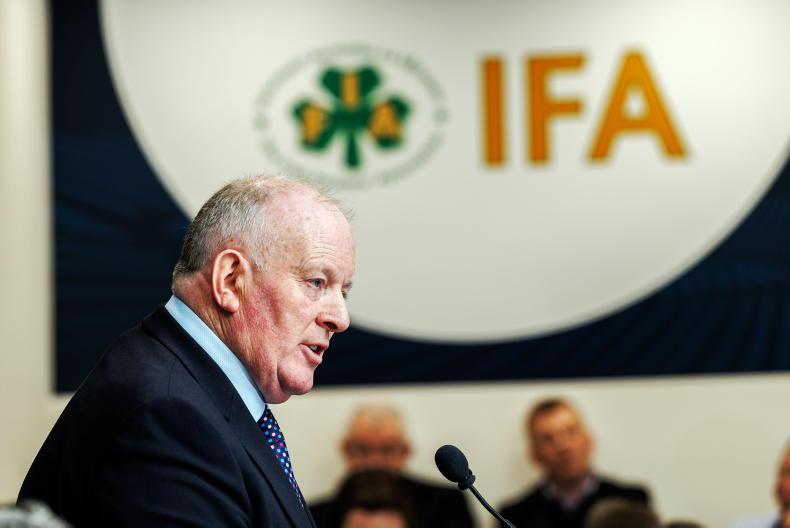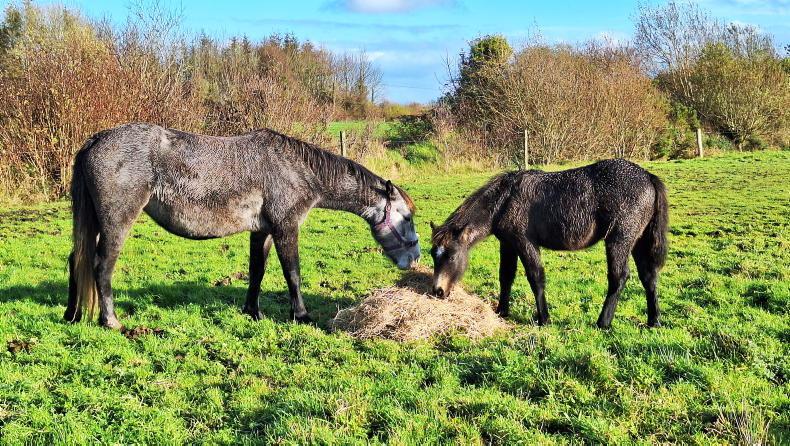Budget 2025 has been met with mixed reaction.
Farmer representatives have welcomed some measures, expressed disappointment that others were not included and said some did not go far enough.
Here is an overview of the measures that have been allocated funding in the agricultural sector:
€100/ha payment for all tillage and field-grown crops.€25/additional calf payment under the Beef Welfare Scheme (BWS), increasing the payment per calf to €75. This brings total payment per cow and calf to €225. €5/ewe additional payment under the Sheep Welfare Scheme (SWS), increasing the payment per ewe to €13. This brings the total scheme payment to €25/ewe.€20/calf extra for dairy-beef scheme, a doubling of the payment to €40/calf. €10m in additional funding for the organics sector. The scheme is to reopen to new applicants in the coming weeks. €10m in additional measures for animal health, including targeted advice for farmers, as well as IBR and BVD.€5m to open the forgotten farmers scheme.€60m for the Agri Climate Rural Environment Scheme (ACRES), bringing scheme funding to €260m in 2025. €90m for forestry. €21.6m for research and development. Residential zone land tax (RZLT): active farmers can avail of an exemption from this tax by taking an option to dezone their land. Income volatility: there is commitment to introduce a tax measure to protect against volatility for farmers in Budget 2026.Capital acquisitions tax (CAT): there will be an amendment to CAT relief to ensure that agricultural relief is only available to genuine farmers.Category A threshold (parent to child) increased from €335,000 to €400,000.Stock reliefs extended to the end of 2027.Accelerated capital allowance extended to a range of new farm safety items.€320m capital programme, including supports for research and development, forestry, Targeted Agriculture Mechanisation Scheme (TAMS) and the food processing sectors.€2.5m for farm safety.€10m for the Straw Incorporation Measure (SIM).€1.5m for clover and €1.25m for multi-species measures.€6m for soil sampling.Department budget
The total funding to be allocated to the Department of Agriculture in 2025 is just over €2bn. This includes a capital programme of €320m and current expenditure of €1.79bn.
This equates to an additional €158m, including a package of €85m for new measures, said Minister for Agriculture Charlie McConalogue.
‘‘I wanted in particular to build on the significant sectoral supports I have put in place since my appointment as Minister.
“With that in mind, I am delivering substantially increased supports for the dairy-beef, suckler, sheep and tillage sectors,” he added.
In relation to the Government’s acknowledgement of income instability in the farming sector, with a measure expected next year, the Minister said work is under way.
“Considerable work has already been undertaken in relation to the introduction of an income volatility measure and I look forward to working with the Department of Finance to build on this with a view to having the necessary legislative parameters addressed in advance of Budget 2026.”
Minister McConalogue added that this is the biggest funding package ever delivered for the agriculture and food sector.
“I am satisfied that following intensive engagement, we have succeeded in obtaining a balanced package that will support the sustainable development of our agriculture forestry and fisheries sectors in 2026 and beyond," he said.
Organics
The organic scheme is to reopen in the coming weeks, Minister of State Pippa Hackett has said.
“I am delighted to have secured an increased budget of €67m for the Organic Farming Scheme for 2025.
“This increase in funding will allow us to reopen the scheme to new participants in the coming weeks as we drive on towards our target of 10% of utilisable agricultural area being farmed organically by 2030,” she added.
Animal health measures
A new targeted advisory service for animal health (TASAH), focused on anti-parasitic use and biosecurity, will be put in place.
This will provide for preparatory work and a farm visit and veterinary consultation to advise on animal diseases - at no cost to the farmer, the Department said.
The output will be farm-specific recommendations on biosecurity measures for each of the targeted 30,000 farms visited.
This will include support for the BVD eradication programme and a national IBR programme, which is a precondition for export of live animals under the new animal welfare and transport rules.
Forgotten farmers
On the forgotten farmers scheme - a group of young farmers who lost out on key payments during the last recession - Minister McConalogue said he will open a scheme for this group with initial funding of €5m provided.
“This is a commitment under the Programme for Government and I am delighted that I am in a position to now progress a scheme that has long been spoken about with additional budgetary provision to be made in 2026,” Minister McConalogue said.
Water quality and the environment
Some €716m is being provided in 2025 for farmers participating in agri-environmental actions, including through ACRES, Areas of Natural Constraint scheme (ANC), the forestry and organic farming schemes.
Minister McConalogue said an increased provision of €60m for ACRES will bring funding for the scheme in 2025 to €260m.
“I have committed €40m in capital funding for the development of a biomethane industry. The commitment for early delivery in 2025 is €5m, with the remainder to be paid in 2026,” he added.
EIPs
The budget continues the funding committed under the €60m water European Innovation Partnership (EIP) ‘Farming for Water’.
A budget of €36m has been allocated for EIPs under the new Community Services Programme (CSP).
Knowledge transfer
The Knowledge Transfer Scheme, which commenced this year, will continue into 2025 and 2026 with the first rounds of payment issuing in March and May 2025 to farmer and adviser participants.
Farm safety
Minister of State Martin Heydon said through a farm safety budget of €2.5m for 2025 he is “determined to make Irish farms safer places to live and work”.
“I am also announcing new eligible items under the accelerated capital allowance (ACA) for farm safety.
“This will include fixed sheep handling units, cattle crushes and races, calving gates, farmyard floodlights, livestock monitors and sliding or roller doors.
“This measure will support practical investments on farms and reflects the huge interest in farm safety items under TAMS III.”
Agri taxation measures
Minister McConalogue welcomed that the Government committed to retain key taxation measures to support the development in the sector in 2025.
These include:
An extension of the stock reliefs for a further three years to 21 December 2027.The capital acquisition tax agricultural relief, which is worth approximately €250m per annum to farmers.Accelerated capital allowances for the purchase of farm safety equipment, with an extended list of eligible investments.Based on macro-economic data from the Central Statistics Office (CSO) and Revenue, the farmers' flat rate compensation will increase from the current 4.8% to 5.1% from 1 January 2025.A new provision requiring the disposer to retain land for at least six years before benefiting from the CAT relief is being introduced.
The Minister welcomed that an opportunity to avail of an exemption from the RZLT in 2025 is being provided for landowners and farmers who carry out genuine economic activity on their land if they seek to have their land rezoned.
“It is critically important that we take measures to progress our housing policies, but this new provision addresses the legitimate concerns of genuine farmers,” he said.
Budget 2025 has been met with mixed reaction.
Farmer representatives have welcomed some measures, expressed disappointment that others were not included and said some did not go far enough.
Here is an overview of the measures that have been allocated funding in the agricultural sector:
€100/ha payment for all tillage and field-grown crops.€25/additional calf payment under the Beef Welfare Scheme (BWS), increasing the payment per calf to €75. This brings total payment per cow and calf to €225. €5/ewe additional payment under the Sheep Welfare Scheme (SWS), increasing the payment per ewe to €13. This brings the total scheme payment to €25/ewe.€20/calf extra for dairy-beef scheme, a doubling of the payment to €40/calf. €10m in additional funding for the organics sector. The scheme is to reopen to new applicants in the coming weeks. €10m in additional measures for animal health, including targeted advice for farmers, as well as IBR and BVD.€5m to open the forgotten farmers scheme.€60m for the Agri Climate Rural Environment Scheme (ACRES), bringing scheme funding to €260m in 2025. €90m for forestry. €21.6m for research and development. Residential zone land tax (RZLT): active farmers can avail of an exemption from this tax by taking an option to dezone their land. Income volatility: there is commitment to introduce a tax measure to protect against volatility for farmers in Budget 2026.Capital acquisitions tax (CAT): there will be an amendment to CAT relief to ensure that agricultural relief is only available to genuine farmers.Category A threshold (parent to child) increased from €335,000 to €400,000.Stock reliefs extended to the end of 2027.Accelerated capital allowance extended to a range of new farm safety items.€320m capital programme, including supports for research and development, forestry, Targeted Agriculture Mechanisation Scheme (TAMS) and the food processing sectors.€2.5m for farm safety.€10m for the Straw Incorporation Measure (SIM).€1.5m for clover and €1.25m for multi-species measures.€6m for soil sampling.Department budget
The total funding to be allocated to the Department of Agriculture in 2025 is just over €2bn. This includes a capital programme of €320m and current expenditure of €1.79bn.
This equates to an additional €158m, including a package of €85m for new measures, said Minister for Agriculture Charlie McConalogue.
‘‘I wanted in particular to build on the significant sectoral supports I have put in place since my appointment as Minister.
“With that in mind, I am delivering substantially increased supports for the dairy-beef, suckler, sheep and tillage sectors,” he added.
In relation to the Government’s acknowledgement of income instability in the farming sector, with a measure expected next year, the Minister said work is under way.
“Considerable work has already been undertaken in relation to the introduction of an income volatility measure and I look forward to working with the Department of Finance to build on this with a view to having the necessary legislative parameters addressed in advance of Budget 2026.”
Minister McConalogue added that this is the biggest funding package ever delivered for the agriculture and food sector.
“I am satisfied that following intensive engagement, we have succeeded in obtaining a balanced package that will support the sustainable development of our agriculture forestry and fisheries sectors in 2026 and beyond," he said.
Organics
The organic scheme is to reopen in the coming weeks, Minister of State Pippa Hackett has said.
“I am delighted to have secured an increased budget of €67m for the Organic Farming Scheme for 2025.
“This increase in funding will allow us to reopen the scheme to new participants in the coming weeks as we drive on towards our target of 10% of utilisable agricultural area being farmed organically by 2030,” she added.
Animal health measures
A new targeted advisory service for animal health (TASAH), focused on anti-parasitic use and biosecurity, will be put in place.
This will provide for preparatory work and a farm visit and veterinary consultation to advise on animal diseases - at no cost to the farmer, the Department said.
The output will be farm-specific recommendations on biosecurity measures for each of the targeted 30,000 farms visited.
This will include support for the BVD eradication programme and a national IBR programme, which is a precondition for export of live animals under the new animal welfare and transport rules.
Forgotten farmers
On the forgotten farmers scheme - a group of young farmers who lost out on key payments during the last recession - Minister McConalogue said he will open a scheme for this group with initial funding of €5m provided.
“This is a commitment under the Programme for Government and I am delighted that I am in a position to now progress a scheme that has long been spoken about with additional budgetary provision to be made in 2026,” Minister McConalogue said.
Water quality and the environment
Some €716m is being provided in 2025 for farmers participating in agri-environmental actions, including through ACRES, Areas of Natural Constraint scheme (ANC), the forestry and organic farming schemes.
Minister McConalogue said an increased provision of €60m for ACRES will bring funding for the scheme in 2025 to €260m.
“I have committed €40m in capital funding for the development of a biomethane industry. The commitment for early delivery in 2025 is €5m, with the remainder to be paid in 2026,” he added.
EIPs
The budget continues the funding committed under the €60m water European Innovation Partnership (EIP) ‘Farming for Water’.
A budget of €36m has been allocated for EIPs under the new Community Services Programme (CSP).
Knowledge transfer
The Knowledge Transfer Scheme, which commenced this year, will continue into 2025 and 2026 with the first rounds of payment issuing in March and May 2025 to farmer and adviser participants.
Farm safety
Minister of State Martin Heydon said through a farm safety budget of €2.5m for 2025 he is “determined to make Irish farms safer places to live and work”.
“I am also announcing new eligible items under the accelerated capital allowance (ACA) for farm safety.
“This will include fixed sheep handling units, cattle crushes and races, calving gates, farmyard floodlights, livestock monitors and sliding or roller doors.
“This measure will support practical investments on farms and reflects the huge interest in farm safety items under TAMS III.”
Agri taxation measures
Minister McConalogue welcomed that the Government committed to retain key taxation measures to support the development in the sector in 2025.
These include:
An extension of the stock reliefs for a further three years to 21 December 2027.The capital acquisition tax agricultural relief, which is worth approximately €250m per annum to farmers.Accelerated capital allowances for the purchase of farm safety equipment, with an extended list of eligible investments.Based on macro-economic data from the Central Statistics Office (CSO) and Revenue, the farmers' flat rate compensation will increase from the current 4.8% to 5.1% from 1 January 2025.A new provision requiring the disposer to retain land for at least six years before benefiting from the CAT relief is being introduced.
The Minister welcomed that an opportunity to avail of an exemption from the RZLT in 2025 is being provided for landowners and farmers who carry out genuine economic activity on their land if they seek to have their land rezoned.
“It is critically important that we take measures to progress our housing policies, but this new provision addresses the legitimate concerns of genuine farmers,” he said.









SHARING OPTIONS